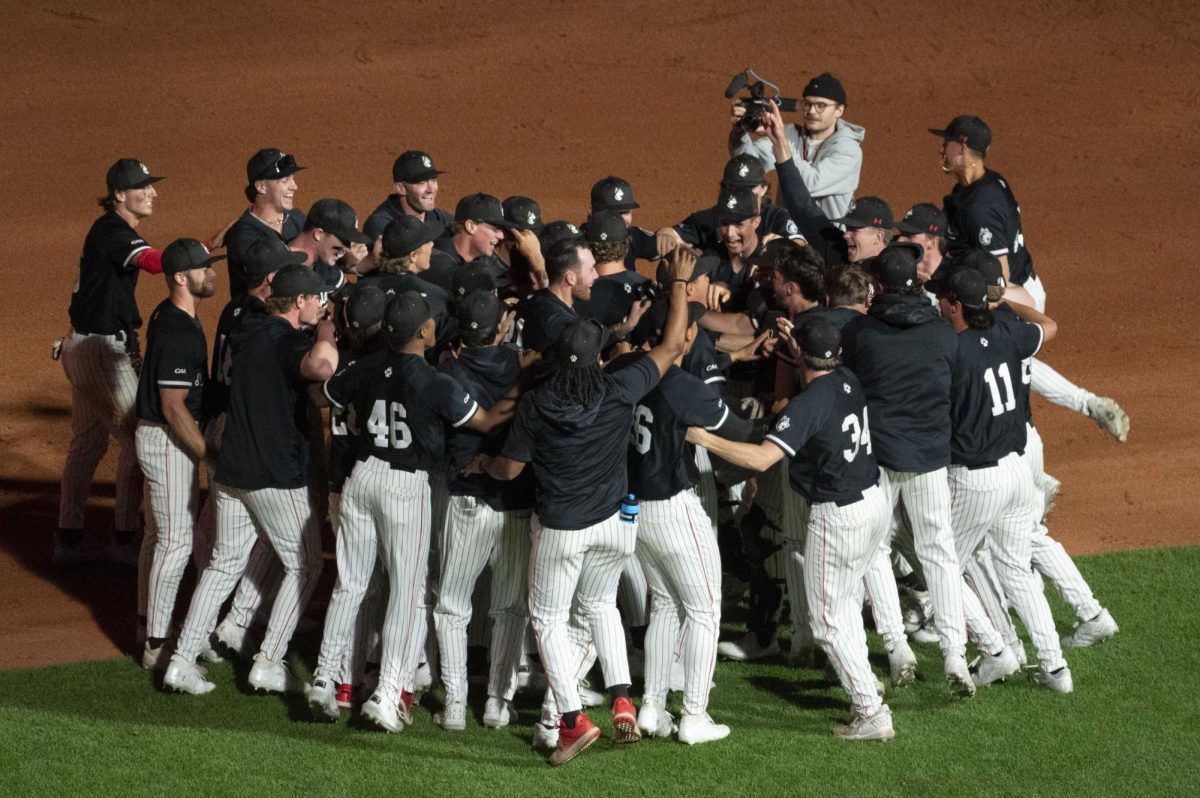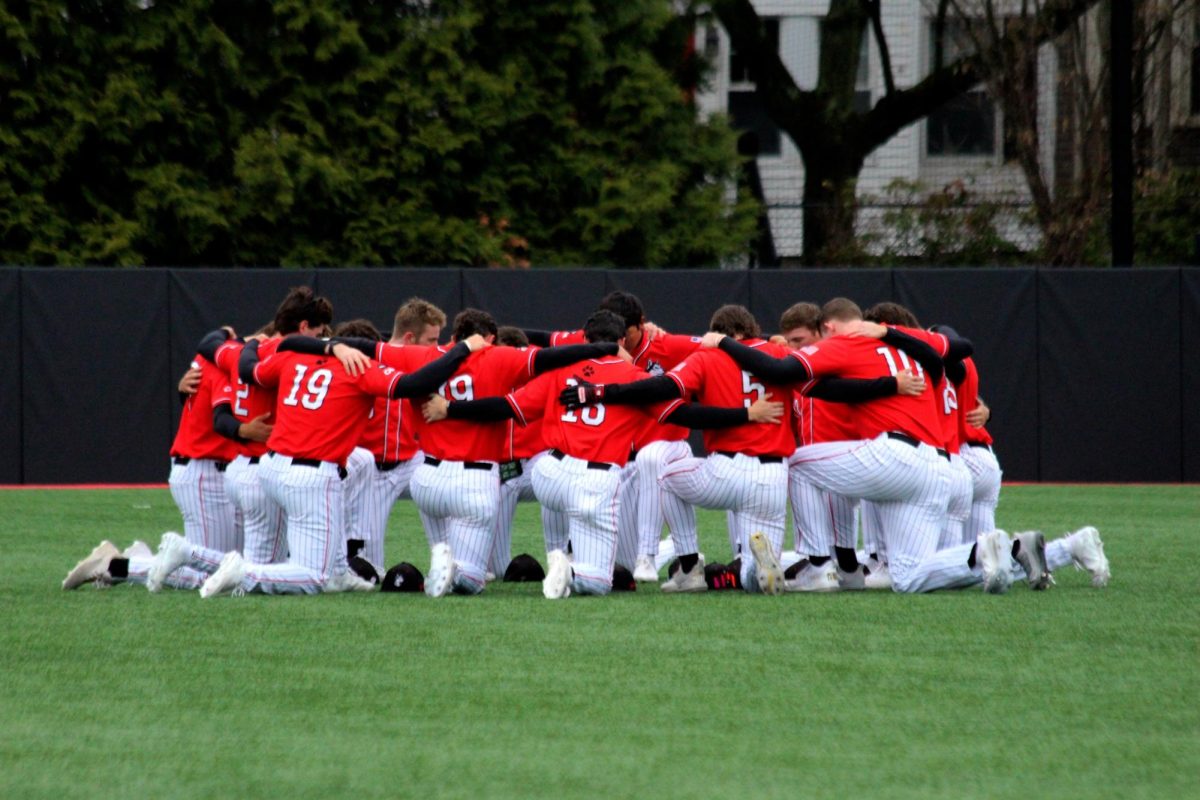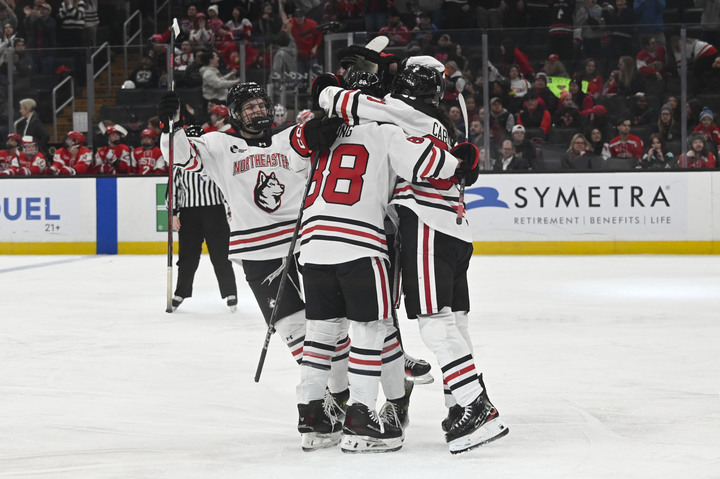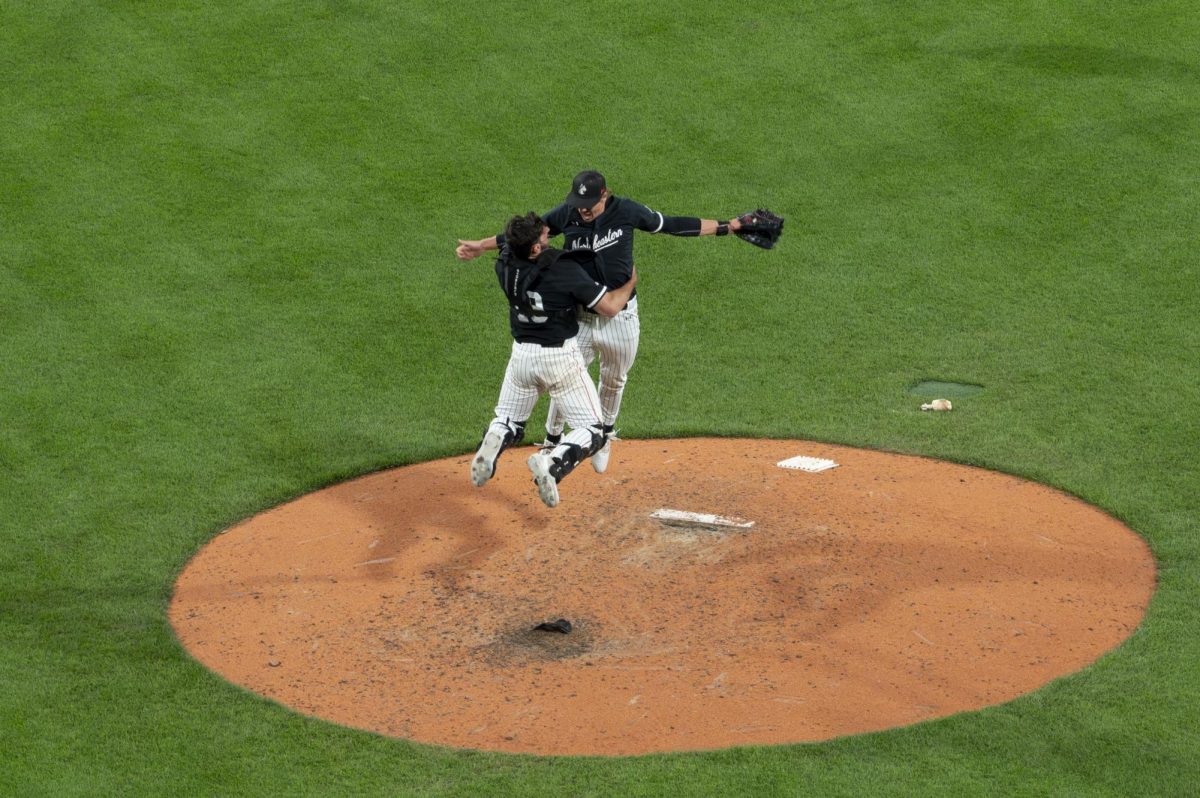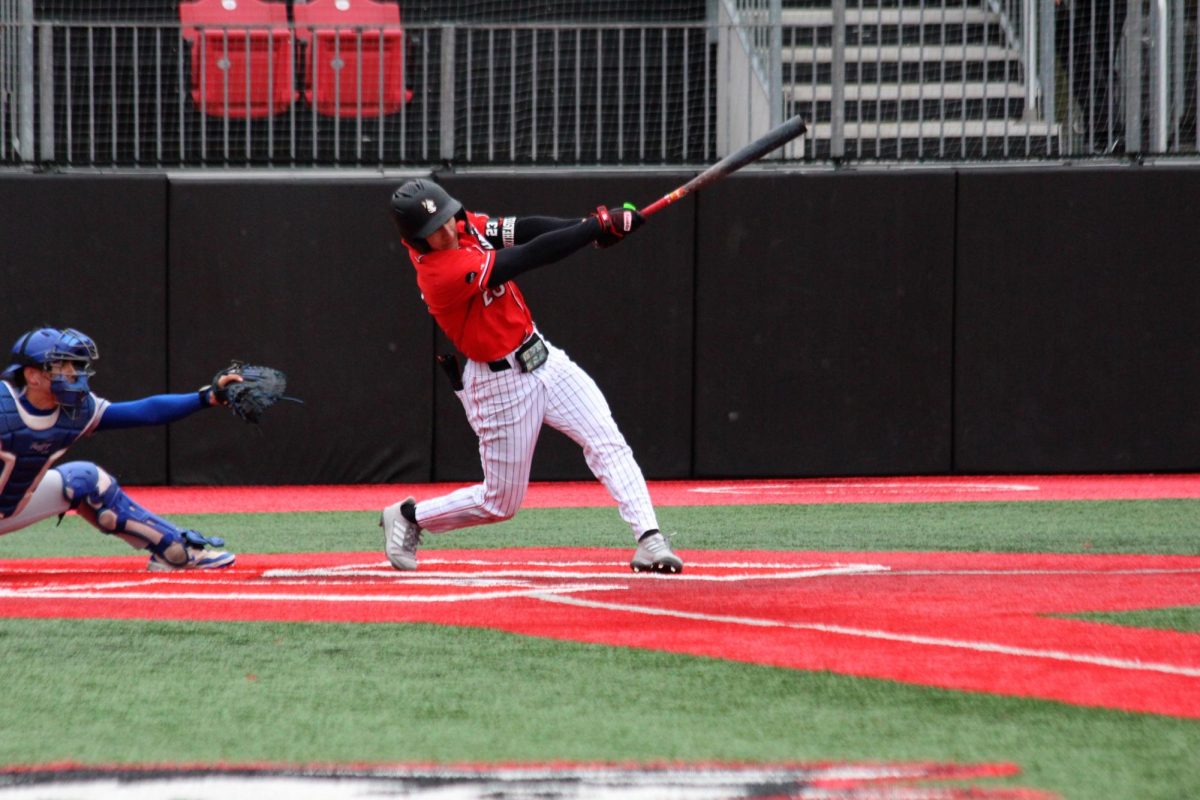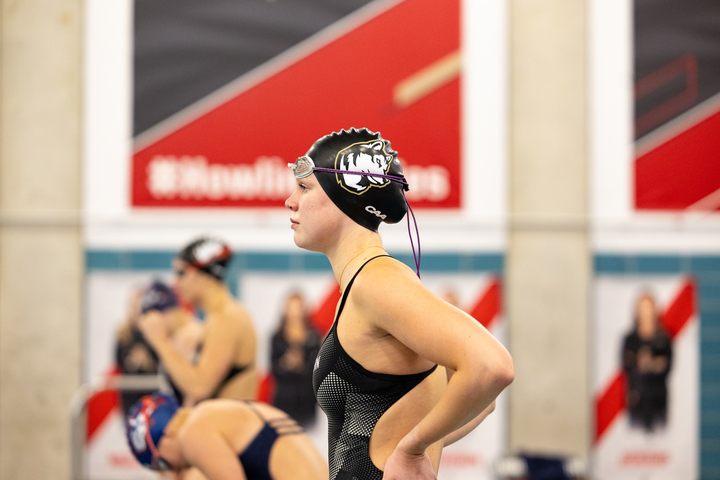By Charlie Wolfson, news staff
Judging by his facial expression, Matt Ryan wanted to be anywhere in the world other than the coin toss preceding the first overtime in Super Bowl history. If looks could kill, referee Carl Cheffers would be 6 feet under.
Having blown a 25 point lead largely thanks to the offense’s inability to stay on the field, Ryan must have known what was at stake at that point. Either his Falcons would win in overtime or they would join an exclusive club occupied by the victims of sport’s most devastating and poetic losses.
As Cheffers explained the rules of overtime to the two sides, Ryan stood at the precipice of being carved into the wrong side of Super Bowl lore. He peered down into the abyss, seeing those who recently suffered such a fate. He saw Stephen Curry, his ego still bruised from his NBA Finals rejection – both literal and figurative. He saw Marcus Paige, whose miraculous shot in the NCAA Championship was for naught. He could see a Cleveland Indians dugout in disbelief, still shaken by the quake of 108 years being overturned. A look of remorseful resignation greeted him on the face of Alex Ovechkin, who suffered what must have felt like a broken record of a loss last May.
The overwhelming focus on the past year’s place in history as possibly the best run of championship drama and triumph ever tends to overlook what is perhaps the most compelling part of the story – the agony of a devastating defeat. As the cameras flash and the reporters swarm to cover the jubilant celebrations, parades and press conferences that follow momentous wins, something arguably more profound takes place on the other side.
Anybody can move on after a big win. It’s one of the easiest things to do in sports. What is far more fascinating and offers better theatre – often giving us a peek into the human side of the athletes we watch – is how athletes and fans alike pick themselves up after an almost unfathomable loss. As Cheffers flipped that coin up into the air, Ryan knew he might have been heading toward one.
So let’s all take a moment to appreciate what some players and fans have to go through while the Bostonians and Chicagoans can bask in the glory of hard-earned championships.
From an outsider’s perspective, the Indians’ 2016 World Series loss is one of the most tragic sports narratives in recent memory. The Tribe, sitting on a 68-year World Series drought, could have reasonably expected to reach the Series and receive the public’s vote as the sympathetic pick. Teams that have gone so long without a title typically garner support from neutral parties, especially when they’re facing a 103-win behemoth as the Indians were.
But they didn’t. They were facing the Cubs, who hadn’t won a Series since 1908. The Indians, just as deserving of the spotlight, were denied their storybook postseason because of the circus that was the 2016 Cubs. Their media following rolled into town and occupied the entire stage.
Oh, and the Indians blew a 3-1 lead in the Series. Not only did they lose, but they won’t be remembered for what made them great. Not for Rajai Davis’ game seven tying home run, not for Andrew Miller’s brilliance. Now and forever, they are simply the Cubs’ doormat sitting on the front porch of immortality.
North Carolina’s defeat in the NCAA Championship was horrific in large part because of its abruptness. Their polarizing senior Marcus Paige, who drew praise on high for his brilliant games and a good deal of ire when the ‘Heels struggled on his watch, drained a ridiculous off-balance three pointer to tie in the dying seconds. Everyone watching the game thought that shot would go down as one of the great, dramatic, celebrated, triumphant shots of all-time.
It didn’t. After a timeout, Villanova went to work on the final seconds and Malcolm Jenkins sunk a buzzer-beating three pointer to win the title. The confetti cannons shot off before the ball hit the floor, and before anyone associated with University of North Carolina basketball could process what had just been done to them. A remarkable season by UNC was marred permanently, as was a once-in-a-lifetime moment for Paige. That iconic shot is merely the preamble to an even greater one.
What makes these stories, and many like them, beautiful is the fact that people choose to endure these things. A fan could easily choose not to care. Why do people choose to stay emotionally invested in teams, even after being put through an emotional wringer?
Why do Washington Capitals fans fill their arena and drive up TV ratings year after year, despite each season ending with the early-round flameout of their heavily favored team? What total lack of self-regard must a person have in order to keep showing up for the Cincinnati Bengals, no matter how many times they self-destruct in the biggest moments? How did people rationalize continuing to support the Buffalo Bills after they lost not two, not three, but four consecutive Super Bowls?
That’s what makes sports so captivating. Anyone can enjoy a win. It’s not hard. But to stick by someone through the most disheartening losses takes a trust and a willingness that makes victory, whenever it may come, that much sweeter. Many will speak of how 2016-17 was the best year of all time for championship games, referring to game-winning plays and comebacks. And they’re not wrong. But the most profound story can be seen on the opposite sideline.







